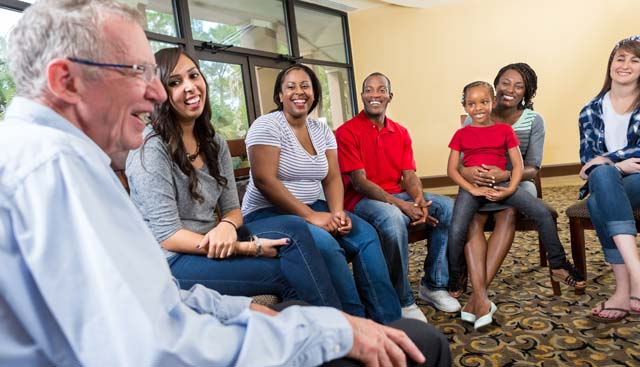
Tips on How to Avoid Social Isolation During Cancer Treatment
Living with cancer can present many physical and emotional challenges to both patients and their families. One challenge that you may not have anticipated, though, is the sense of isolation you experience at various points during your cancer journey.
Cancer treatment can affect you in many ways, and the side effects can be intense and long-lasting. While some, like hair loss, may be readily apparent to the people around you, others might be less obvious, such as your feelings of general discomfort or fatigue. Oftentimes, this may include a lack of energy – or even a desire – to be social. Of course, you need to respect your feelings and stay true to yourself, but be careful not to allow this to interfere with your receipt of highly beneficial support from your family members and friends.
Many studies of cancer survivors show that social isolation can lead to anxiety, stress, emotional distress and even depression. Therefore, it’s important to stay connected with others during your treatment. There are many ways that you can maintain your social connections, and some are possible even at times when you find it physically or emotionally difficult to be around other people. Here are a just few ideas:
- Be selective — Focus on the people and activities that can potentially bring you the most happiness, and don’t feel guilty about turning down other invitations that you simply don’t feel up to accepting.
- Take advantage of technology – You might enjoy connecting with others virtually through social media platforms like Facebook, Twitter and Instagram. Also, consider blogging or staying in touch via Skype.
- Keep it simple – Instead of attending large and potentially stressful social gatherings, consider reaching out to one or two close friends at a time to create intimate experiences that you will feel more comfortable with.
- Keep it brief – If you don’t think you can handle being out for an entire evening, offer to join some friends for a quick chat over coffee in the afternoon or dessert after dinner.
Additionally, you might consider participating in a professionally led support group, which can foster a safe and affirming environment in which you can learn new ways to cope with your cancer and its treatment, as well as reduce your feelings of isolation. You may also find it helpful to connect with others who are going through similar experiences, and therefore are able to empathize with you in ways that even your close and well-meaning family members and friends cannot.
At Moffitt Cancer Center, we offer a full range of supportive care services and support groups, which are available to our patients throughout cancer treatment and beyond. To learn more, call 1-888-663-3488 or complete our new patient registration form online. We do not require referrals.
